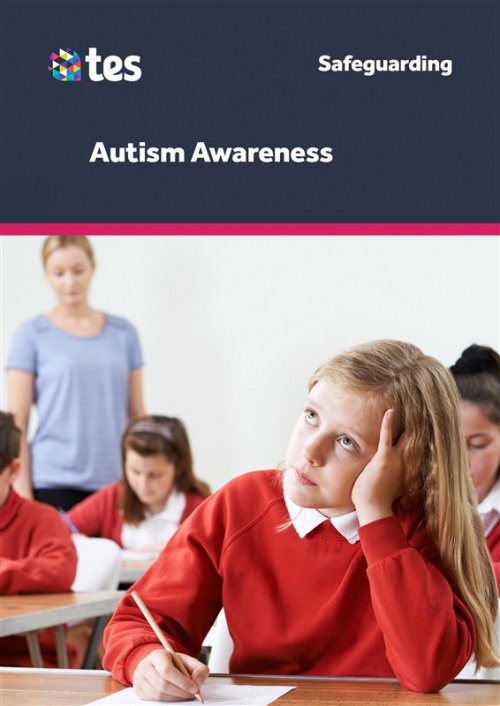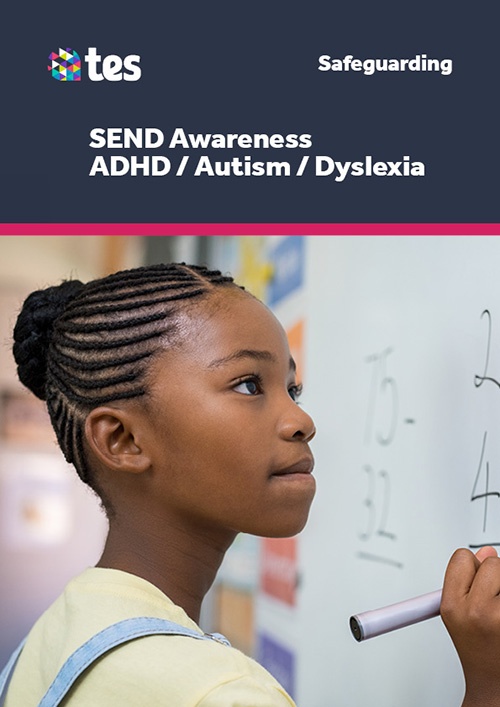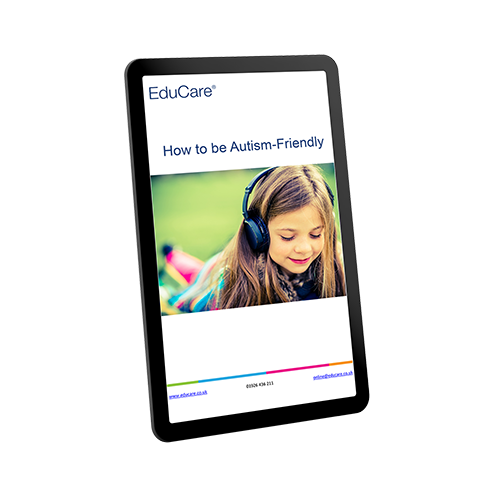
Autism Awareness Week: Supporting pupils with Special Educational Needs and Disabilities
As part of our activity to support Autism Awareness Week, we are sharing a personal testimonial from the Education Consultant at Connect, EduCare’s SEND specialist partners.
Personal Testimonial: Alastair Fielden, Education Consultant, Connect
“During my teaching degree, a group of us decided to put a pamphlet together about Special Needs. We all had various reasons for our interest in SEN and wanted to inform our colleagues. With input from one of our lecturers, we drafted the content from a mix personal and general experiences. The aim was to do something to inform the rest of our fellow students about the kinds of needs that pupils may face. As an awareness-raising activity, this was as far as it went,
“Thankfully Initial Teacher Training courses are changing with the mandate for SEND awareness training courses, yet there are many school staff who may feel similar to how I and my fellow graduates felt when entering the profession: overwhelmed and under-supported in knowing how to teach or support pupils with SEN effectively; daunted by the raft of ‘labels’ describing disabilities and the lists of associated strategies.
“While there is a knowledge-base that certainly helps, and for some SEN specialist teachers there are specific qualifications, we don’t need to wait until we have all the information before we start. Being thrown in at the deep end in an all-age special school, I soon had to learn one very important lesson: to get to know the child or young person as an individual without getting ‘stuck’ and overwhelmed about the pupils’ needs as communicated by medical and care staff at the start of term.
“Get to know the pupil as a person, and take time to talk to their parents/carers too. They are the experts on their child and will have valuable information that could inform how you do something to support them in your classroom. Parents may have felt they have not had their concerns taken into account. Too often I have heard colleagues say things such as ‘Well, so and so doesn’t do that in school, so it must be a home issue’.
“What we aim to become is confident and effective in supporting pupils with SEND. This cannot be accomplished on our own; it takes a team approach. One trap to avoid is a lie that could be expressed as, “I’m the class teacher, so I need to know everything to teach my class, but if I admit to not knowing this, I may be viewed as not being competent.”
So what steps can we take towards this aim?
- Get to know the individual pupil and withhold assumptions about how you think they might learn. If we have met one child with a particular learning difficulty or disability, then we have met one person with that particular disability.
- Talk to the SENCO about strategies and the process of the Assess, Plan, Do and Review cycle.
- Join website support groups and twitter feeds to become informed from those who know more. There are many parent support forums and groups which you could join, or at least be on the mailing list.
- Build up your own evidence of what didn’t work, as well as what is successful. Do not be afraid
to be honest. We quote the proverb to pupils that ‘he who never made a mistake, never made anything.’ - Support can often be ‘done to the pupil’ rather than in partnership with them. This involves taking measured, informed risks. By all
means read up on those ‘strategy lists’ but do talk to the pupil about what they feel works for them and explain why new strategies are being introduced, relevant to their age and understanding. - Celebrate the pupil’s achievements with them, no matter how small they may seem. They may be huge in the pupil’s eyes. Share what works with parents too, as this provides them with much-needed encouragement.
Written by Alastair Fielden, Connect’s Education Consultant who has over 20 years’ experience in SEND Education and assistive technologies.
Our new SEND Awareness courses on Autism, ADHD
Get in touch to find out more
Return to news
Related content:
Autism Awareness
This course provides an overview of Autism for those that work with children and young people in education. It covers what autism is, its prevalence and causes, how it is diagnosed and the implications for pupil learning.
Read moreAutism Awareness
After completing this course you will:
- understand what autism is
- know the terminology used to describe autism
- learn about the prevalence of autism
- understand how autism is diagnosed
- be able to identify the indicators that may suggest the presence of autism
- recognise the ways that autism can affect learning
- understand how to report concerns about autism
- have learnt tips for an autism-friendly approach in classroom environments.
SEND Awareness Courses - Dyslexia, ADHD, Autism
SEND Awareness contains three one-module courses, written in partnership with Connect.
- Autism Awareness - covers what autism is, its prevalence and causes, how it is diagnosed and the implications for pupil learning.
- Dyslexia Awareness - provides an overview of dyslexia and visual stress for those that work with children and young people.
- ADHD Awareness - covers the causes, prevalence, symptoms and diagnosis through to treatment and how to support children with ADHD.
SEND Awareness Courses - Dyslexia, ADHD, Autism
Written in partnership with Connect, SEND Awareness includes three one-module courses designed to provide an overview of Autism, Dyslexia, and ADHD for those working in education.
Read moreAutism Awareness
After completing this course you will:
- understand what autism is
- know the terminology used to describe autism
- learn about the prevalence of autism
- understand how autism is diagnosed
- be able to identify the indicators that may suggest the presence of autism
- recognise the ways that autism can affect learning
- understand how to report concerns about autism
- have learnt tips for an autism-friendly approach in classroom environments.
SEND Awareness Courses - Dyslexia, ADHD, Autism
SEND Awareness contains three one-module courses, written in partnership with Connect.
- Autism Awareness - covers what autism is, its prevalence and causes, how it is diagnosed and the implications for pupil learning.
- Dyslexia Awareness - provides an overview of dyslexia and visual stress for those that work with children and young people.
- ADHD Awareness - covers the causes, prevalence, symptoms and diagnosis through to treatment and how to support children with ADHD.
How to be Autism-Friendly
Autism is a spectrum condition meaning that individuals will share certain difficulties, but their condition will affect them in different ways.
Read more


